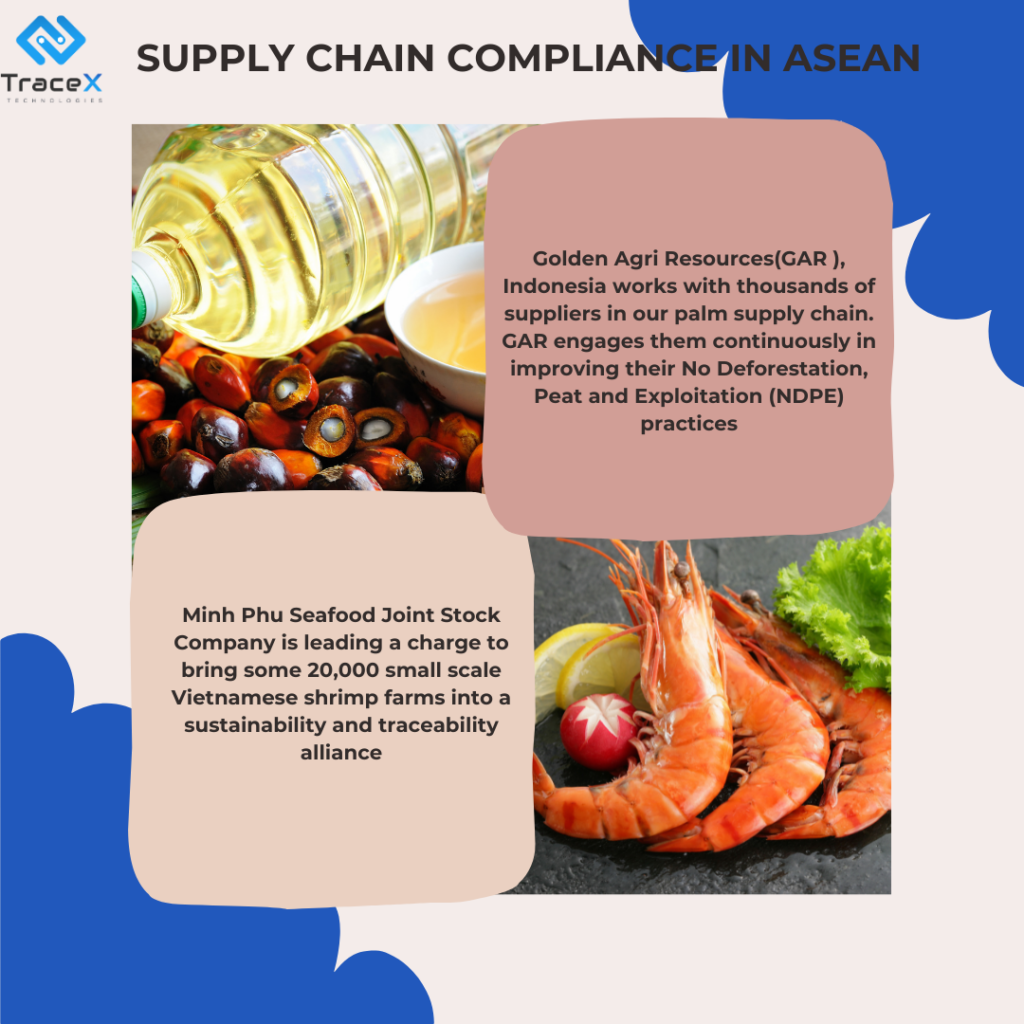Contact: +91 99725 24322 |
Menu
Menu
Quick summary: Explore the challenges and solutions for supply chain compliance in Southeast Asia. Learn how to navigate regulatory diversity, labor issues, environmental concerns, and counterfeiting through collaboration, technology, supplier engagement, and certifications.

Navigating supply chain compliance in Southeast Asia presents a unique set of challenges and opportunities for businesses operating in the region. From diverse regulatory frameworks to cultural nuances and geopolitical complexities, organizations face multifaceted obstacles in ensuring compliance with international standards and local regulations. However, with these challenges come innovative solutions and strategies tailored to the dynamic landscape of Southeast Asia.
Supply chain compliance refers to the adherence to regulations, standards, and ethical practices throughout the entire supply chain process. It encompasses various aspects such as labor practices, environmental regulations, product safety standards, and trade regulations. Compliance ensures that businesses operate ethically, sustainably, and legally while minimizing risks such as reputational damage, legal penalties, and disruptions to operations. In today’s interconnected global economy, supply chain compliance has become increasingly critical due to heightened consumer awareness, stricter regulations, and growing stakeholder scrutiny. Companies that prioritize compliance demonstrate integrity, build trust with consumers and stakeholders, and mitigate risks associated with non-compliance.
Southeast Asia plays a pivotal role in global supply chains due to its strategic geographical location, abundant natural resources, and vibrant manufacturing sector. The region encompasses countries such as Thailand, Vietnam, Indonesia, Malaysia, the Philippines, and Singapore, each contributing uniquely to the global economy. Southeast Asia serves as a manufacturing hub for various industries, including electronics, textiles, automotive, and agriculture, supplying goods to markets worldwide. Additionally, the region’s burgeoning middle class and expanding consumer markets present lucrative opportunities for businesses seeking growth. However, Southeast Asia also presents challenges such as diverse regulatory environments, cultural differences, infrastructure limitations, and geopolitical tensions, making supply chain compliance essential for navigating the complexities of doing business in the region.
Southeast Asia is a region characterized by a diverse regulatory landscape due to its composition of multiple countries, each with its own legal and regulatory frameworks. The differences in regulations can pose significant challenges for businesses operating across borders.
Labor practices and worker rights are critical compliance areas in Southeast Asia, influenced by varying degrees of economic development and social norms.
Environmental compliance is a growing concern as Southeast Asia faces significant environmental challenges.
Ensuring supply chain transparency is crucial for businesses operating in Southeast Asia but remains a significant challenge.
Working with local governments, non-governmental organizations (NGOs), and industry partners is essential for addressing compliance challenges in Southeast Asia. Engaging with local authorities helps businesses navigate regulatory landscapes and ensure compliance with national and regional laws. Partnering with NGOs can provide businesses with valuable insights into social and environmental issues. NGOs often have on-the-ground experience and can help companies implement sustainable practices and monitor compliance with labor and environmental standards. Collaborating with other businesses and industry associations allows for the sharing of best practices and resources. These collaborations can lead to the development of innovative solutions and funding opportunities for projects aimed at improving compliance and sustainability.
In the face of Southeast Asia’s booming economic landscape, ensuring supply chain compliance becomes crucial. Fortunately, technology offers powerful tools to overcome the challenges in this region.
Imagine being able to track your product’s journey, from the raw materials sourced in a Southeast Asian farm to the finished good on a store shelf. Traceability solutions make this a reality.
Navigating the complex web of regulations across Southeast Asia can be daunting. Compliance management software simplifies this process:
The vast amount of data generated in today’s supply chains can be overwhelming. Data analytics tools help turn this data into actionable insights:
By strategically utilizing these technological solutions, businesses in Southeast Asia can overcome the challenges of supply chain compliance and build a more secure, sustainable, and ethical future.

TraceX’s supply chain traceability solutions streamline compliance management by providing comprehensive visibility and control over every step of the supply chain. By utilizing unique Batch IDs and linking them to Farm IDs, TraceX enables businesses to monitor and document the journey of products from their origin to the final consumer. This detailed tracking ensures that all regulatory requirements, such as those outlined in the EU Deforestation-free Regulation (EUDR), are met with precision. The platform facilitates the collection of necessary data, risk assessments, and the generation of due diligence statements, simplifying the compliance process. Ultimately, TraceX enhances transparency, mitigates risks, and ensures adherence to legal and ethical standards, fostering greater consumer trust and operational integrity.
Engaging with suppliers is critical to ensuring compliance throughout the supply chain. Regular and transparent communication with suppliers helps in understanding their capabilities and challenges. It ensures that suppliers are aware of compliance requirements and expectations. Conducting regular audits and assessments of suppliers helps verify compliance with labor, environmental, and safety standards. These evaluations can identify areas for improvement and ensure adherence to best practices.
Certifications and industry standards play a crucial role in ensuring supply chain compliance. Adopting international standards such as ISO certifications helps businesses align with globally recognized best practices. These standards provide frameworks for quality management, environmental management, and social responsibility. Obtaining certifications from reputable third-party organizations adds credibility and assures stakeholders of compliance with specific standards. Examples include Fair Trade, Rainforest Alliance, and LEED certifications. Participating in industry-specific standards and initiatives ensures that businesses comply with sector-specific requirements. These voluntary sustainable standards often address unique challenges and promote uniformity across the industry.
In today’s globalized world, consumers are increasingly demanding transparency and ethical practices from the brands they support. For businesses operating in Southeast Asia, where navigating complex supply chains is a reality, implementing a strong Ethical Code of Conduct (ECoC) is crucial for responsible sourcing and compliance.
An ECoC acts as a roadmap, outlining your company’s commitment to ethical and responsible business practices throughout your supply chain. It should clearly define expectations regarding:
In conclusion, navigating supply chain compliance challenges in Southeast Asia requires a multifaceted approach that addresses the region’s regulatory diversity, labor issues, environmental concerns, and the prevalence of counterfeit products. By leveraging collaboration with local governments, NGOs, and industry partners, adopting advanced technologies like blockchain and AI, engaging with suppliers, and focusing on training and capacity building, businesses can effectively manage these complexities. Additionally, adhering to international certifications and standards plays a crucial role in maintaining compliance.
Embracing these solutions not only ensures adherence to legal and ethical requirements but also enhances supply chain transparency, builds consumer trust, and fosters sustainable business practices. With the right strategies in place, companies can thrive in Southeast Asia’s dynamic and challenging market environment.
